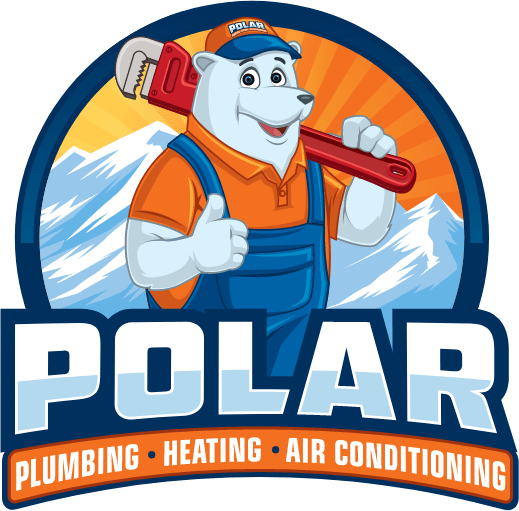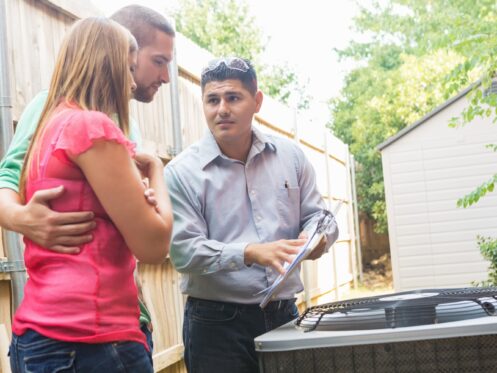Heat pumps offer an efficient way to both heat and cool a home. By moving heat instead of generating it, heat pumps achieve a level of efficiency that has made them increasingly popular among homeowners. Heat pumps are a better alternative to traditional furnaces, boilers, and air conditioners.
In addition to saving you money, installing heat pumps can deliver greater comfort, durability, and adaptability compared to traditional solutions. Their many advantages make them worth serious consideration for anyone looking to install or upgrade an HVAC system in their home.
Energy Efficiency
Heat pumps can feel a bit like magic. During winter, they pull heat from the outside air or ground and move it indoors. The big thing to remember is that latent heat is still relatively abundant, even in cold weather. In summer, they reverse this process, removing heat from your home and releasing it outside. This process feels a little less astounding simply because it’s almost exactly how an air conditioner works.
The Coefficient of Performance (COP) is the most common measure of heat pump performance. Most modern heat pumps have a COP between three and five, meaning they deliver three to five units of heat energy for each unit of electricity consumed. Compare this to electric resistance heaters, which have a COP of only one. Gas furnaces have a COP of less than one because they typically operate at 80 to 95 percent efficiency.
Traditional HVAC systems burn fuel or use electric resistance to generate heat, consuming significant energy. A typical heat pump can reduce electricity use for heating by approximately 50 percent compared to electric furnaces or baseboard heaters. When oil or propane systems are replaced, the savings grow even larger.
Efficiency improvements translate directly to lower monthly energy bills. After switching to a heat pump, an average homeowner might save $300 to $1,200 annually. Beyond financial benefits, reduced energy consumption means fewer greenhouse gas emissions, leaving you with a smaller carbon footprint without sacrificing comfort.
Financial Incentives
Heat pumps require a more considerable upfront investment than traditional heating systems; however, they deliver substantial long-term savings that offset this initial cost within several years.
Modern heat pumps also reduce maintenance expenses compared to conventional HVAC systems. With fewer mechanical components and no combustion process, heat pumps typically require only essential annual maintenance. Simple tasks like replacing filters and cleaning the coils are important for maintaining air quality. These steps help ensure that the air stays fresh, even if you don’t have an air conditioner. A heat pump’s simplicity means fewer service calls and repair costs over the system’s lifetime.
Likewise, heat pumps eliminate the need for separate heating and cooling systems. Instead of purchasing and maintaining a furnace and an air conditioner, a single heat pump effectively handles both functions, reducing equipment costs and simplifying home mechanical systems. This is particularly helpful when you have limited space in your home. While Newburgh gets cold enough that you might still need a furnace for the coldest nights, your heat pump can do most of the work. That means less furnace wear and tear.
Financial incentives make heat pumps even more attractive. Federal tax credits can return up to 30 percent of installation costs, and state rebates and utility company incentives might add thousands more in savings. Some utility companies also offer reduced electricity rates for heat pump owners.
All the advantages of heat pumps contribute to higher property values. Homes with energy-efficient heat pumps often command higher resale prices and sell faster than properties with conventional HVAC systems.
Increased Comfort and Safety
Heat pumps excel at maintaining consistent temperatures throughout your home. Unlike traditional systems that blast hot or cold air in short cycles, heat pumps operate more continuously at lower intensities. This approach eliminates the hot and cold spots common with conventional HVAC systems and keeps your home at your preferred temperature without dramatic fluctuations.
Heat pumps also significantly improve indoor air quality through their humidity control features. During summer, they remove excess moisture while cooling, creating a more comfortable environment. They also reduce the conditions that promote mold and mildew growth. Modern heat pumps even incorporate advanced filtration systems that better capture dust, pollen, pathogens, and other airborne particles than standard furnace filters.
Heat pumps offer enhanced safety compared to combustion-based heating systems. Without flames, pilot lights, or fuel burning, they eliminate the risks of carbon monoxide poisoning, gas leaks, and fire hazards associated with conventional furnaces. This makes them particularly valuable for homes with children, elderly residents, or anyone with respiratory sensitivities.
Heat pumps’ zone control capabilities allow different areas of your home to maintain different temperatures. This flexibility lets family members customize their comfort while preventing energy waste in rarely used spaces. For example, if someone has a medical condition and needs a specific climate setting in their bedroom, they can achieve it without inconveniencing others. Many systems now include smart controls that learn your preferences and adjust automatically, enhancing comfort and maximizing efficiency.
Flexibility
Modern heat pumps adapt effectively to diverse climate conditions. Even in cold regions, advanced technology allows them to operate efficiently at temperatures well below freezing. Cold-climate models can extract heat from air as cold as -10 degrees Fahrenheit, making them viable options for most North American locations. Hybrid options are also available that provide backup heating from a furnace or similar system in severe conditions.
The versatility of heat pump systems gives homeowners more options for installation and operation. You can use ducted heating and cooling systems that work with your current ductwork or choose ductless mini-split systems that provide focused heating and cooling in specific areas of your home. Some systems are also available for retrofit with existing HVAC systems to serve as hybrid models.
Durability and Reliability
Heat pumps typically last 15 to 20 years when properly maintained, outlasting many conventional HVAC systems. Their more effortless operation, which uses fewer moving parts, leads to less wear and tear and a lower chance of breaking down. Heat pumps do not experience the harsh thermal cycles that traditional heating systems face, which helps reduce wear on other components in your home’s heating and cooling systems. Generally, some basic annual heat pump maintenance and filter changes are all it takes to keep them running for up to two decades.
Environmental Benefits
Today’s heat pumps offer significant environmental advantages through their refrigerant management. Modern heat pump systems use sealed refrigerant circuits that minimize leakage compared to older HVAC technologies. Many newer models also use eco-friendly refrigerants with lower global warming potential. This reduced environmental impact makes heat pumps a responsible choice for environmentally conscious homeowners looking to decrease their footprint.
The HVAC technicians at Polar Plumbing, Heating & Air Conditioning know how to do the work right. You can ask us about installing, maintaining, and repairing heat pumps and other heating and cooling systems. We work on ductless mini-split AC units as well. Likewise, we would be happy to look at a furnace or boiler. We have answers if you have questions about dehumidifiers, humidifiers, or indoor air quality.
Our company has been in business since 2019, and we’ve earned a reputation for honest service and transparent pricing. We can provide a project estimate for free. Qualified customers can also apply for financing upon approval for installation jobs.
If you’re considering installing a heat pump in a home in Newburgh, NY, or a nearby community, contact Polar Plumbing, Heating & Air Conditioning today.

